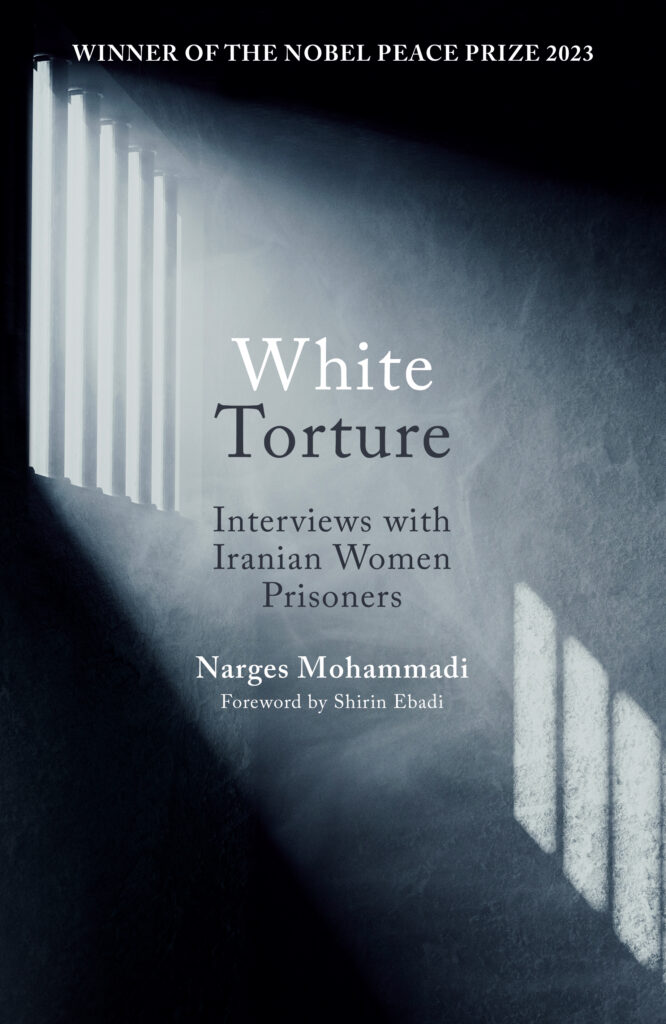WHITE TORTURE: Interviews with Iranian Women Prisoners
Narges Mohammadi is Vice President of the Defenders of Human Rights Center. A professional engineer, she lost her post in 2009, following a jail sentence. As a journalist, she wrote many articles arguing for social reforms in Iran and published an essay collection, The Reforms, the Strategy, and the Tactics. She campaigns for the abolition of the death penalty, women’s rights and the right to protest. She has spent over eight years in Iranian prisons and has been incarcerated since November 2021 – the same year she was nominated for the Nobel Peace Prize. Her work has been praised by Amnesty International, Reporters Without Borders, and PEN. Her documentary White Torture won an award for reportage at the International Film Festival and Human Rights’ Forum. Her family now lives in France. ... Read more Read less
'A must-read for anyone concerned with human rights in Iran. A gripping, moving and utterly shocking account.'
Kylie Moore-Gilbert
- Female prisoners of conscience and activists speak out against torture in Iranian prisons.
- The testimonies of 14 women collected in White Torture read like a charge sheet against the Islamic Republic.
In White Torture, fourteen women, including Nazanin Zaghari-Ratcliffe, share their experiences of imprisonment: harassment and beatings by guards, total blindfolding and denial of medical treatment. Angry interrogators threaten their families and lie about their whereabouts. One prisoner is even told she is dead.
None of the women have committed crimes – they are prisoners of conscience or held hostage as bargaining chips. Through torture, the Iranian state hopes to remake their souls. These interviews, carried out by Narges Mohammadi while each woman was in prison or facing charges, are astounding documents of resistance and integrity. As Iranians still fight for Woman, Life, Freedom, White Torture indicts the regime for its crimes.
... Read more Read less










